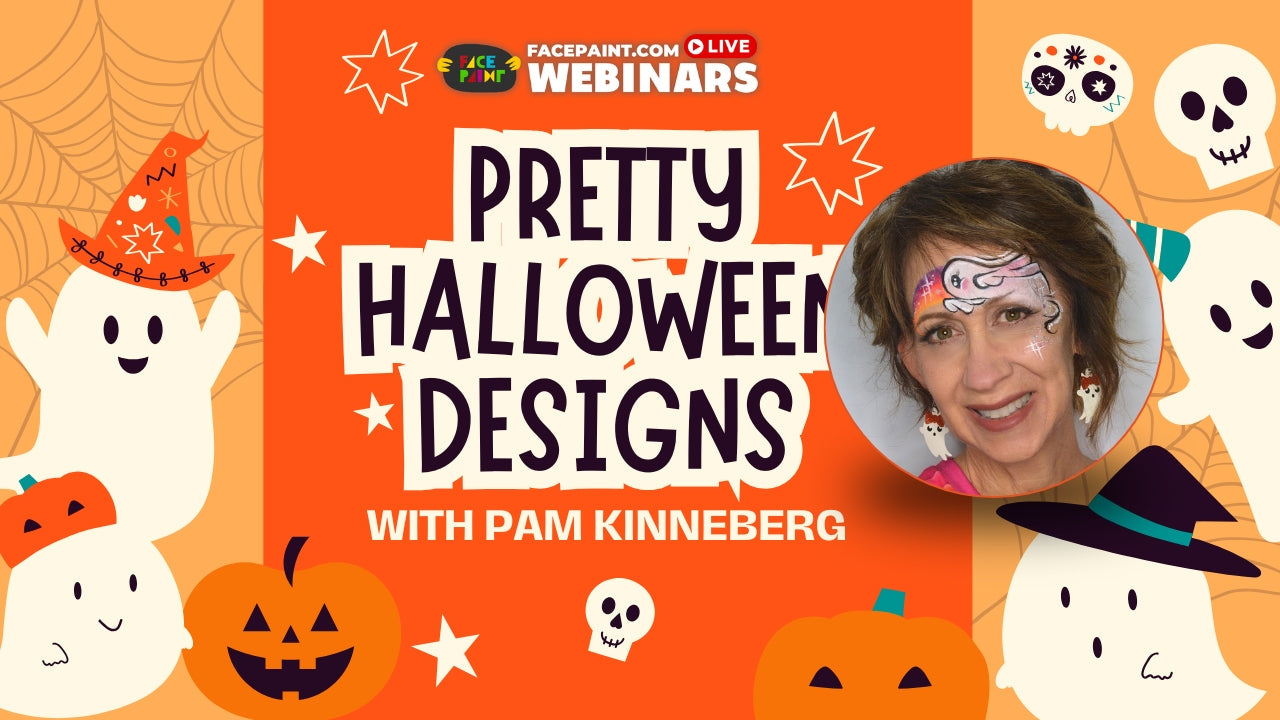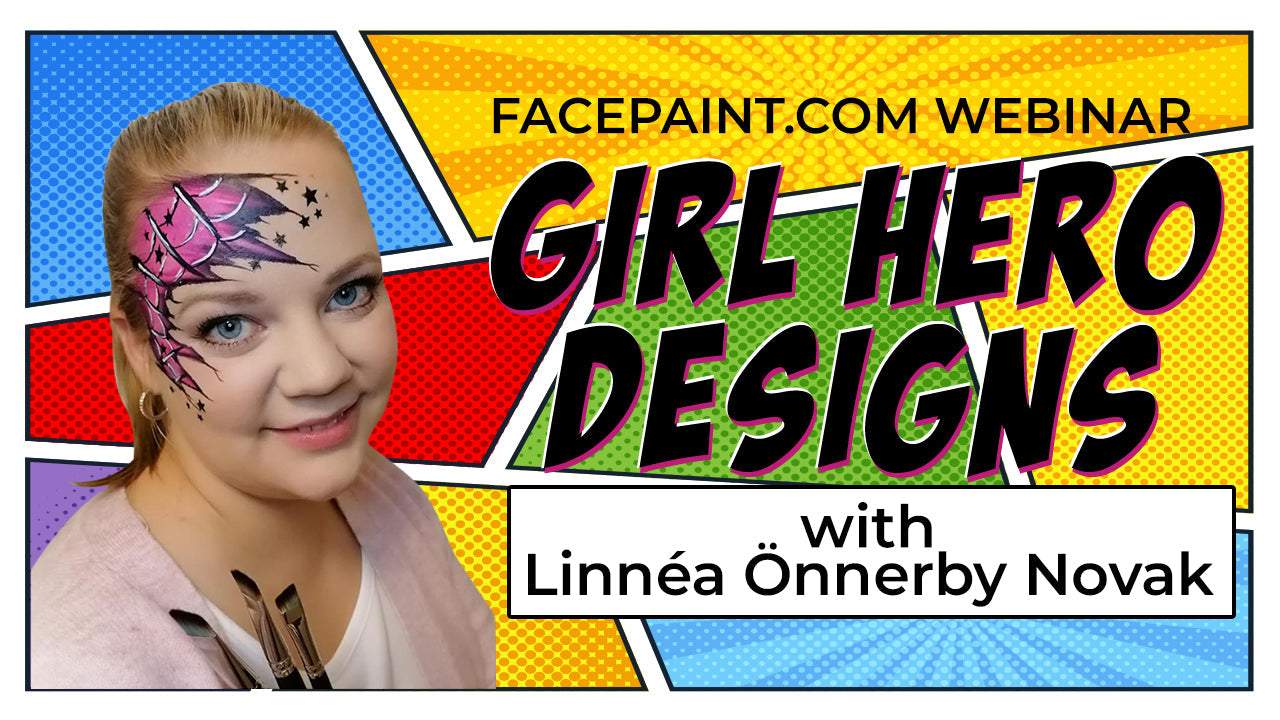Problem: It’s the quieter season for face painting, just after the holidays, and while your schedule is beginning to fill up, you still have some open slots over the next few weekends. A potential client gives you a call, saying she would like to hire you for a weekend two weeks away. As you check your calendar and give her your quote for the event, she mentions that she’s checked in with another face painter who will give her one hour for 75% of your rate, and two hours for 50% of your regular rate. She wants to know if you’ll match the price. You decline, but thank her for considering you and express your wishes that she has a nice party.
Although you don’t expect to hear from her again, she calls you back a week later. Are you still available? Are you sure you won’t reconsider your rate? Her budget just won’t accommodate your quote. When you decline again, she says that you could even call her the night before if you come down to her price, and she’ll take you. You are still available for her time slot, and she’s persistent, but the rate she is naming would mean you’d be working for pennies per hour. Should you seriously consider the event?
Solution: The answer to this question could be different, depending on the face painter. A new painter may require practice, and so may take a job which pays very little. A more experienced painter, however, probably will not. Personally, I’ve made a decision not to change my rate once I’ve quoted an event, and there are several good reasons for this.
For one thing, it is possible that there is no “other face painter,” and that the client is simply giving you false information in hopes that it will drive you to become competitive and lower your rate to get her business. This is unfortunate, but as a business person, if you plan to allow negotiations of your price, you will have to take into account that not every customer will be honest with you. There is no way for you to tell.
It’s also possible that your rate will fit in the client’s budget, but that she just wants to get a lower price. I encountered this early on in my career. I tried to extricate myself politely from a potential clients call when she began to haggle for a lower price, but she refused to allow the conversation to end. I didn’t feel I could just hang up on her, because I didn’t want to be rude, so while I wouldn’t come down in rate, I finally agreed to try to fit the number of guests to be painted into a shorter amount of time, which would cost her less.
I regretted it later and learned from the experience. Our agreement put me in a very stressful situation as a face painter, and when I arrived at the party, which was being held at a hotel, I felt that the hostess had not been entirely honest about her available funds. The event sported lavish balloon decorations and formal dining for 500 guests, with face painting for the children (about 40 of them) in a separate room with me. I began to doubt that an extra $25 to $50 would have broken the bank for the event, but during our phone conversation, there was no way for me to tell that was the case. I’ve heard similar stories from other entertainers, so this does happen on occasion.
But the real truth of the matter is that if you’re going to be able to hold your ground against persistent hagglers, you will have to base your rates on an exact assessment of what your business costs to be run, and this means knowing your business inside and out. What does it cost you to operate a face painting business? Do you keep spreadsheets which help you track all expenses and income? What is left after expenses and taxes are taken out of your gross income? When you split the net income up between all the hours you spend operating your business (including the non-painting hours, which are the majority), what hourly wage are you actually making?
When I recently encountered a similar scenario to the one above, I didn’t have any difficulty politely saying no to the person on the phone. She probably did have a limited budget for her party, and I understand budget limitations. When my kids were young, I didn’t have an income that would allow professional entertainment at our parties, so I did everything myself, from cake to games. But a client’s budget should have no bearing on my rates. They have to be primarily determined by what it costs me to run a face painting business. When this client called, I knew that cutting my rate in half would mean working for cost, or at the most, pennies per hour after taxes. While I will occasionally give special rates to charities which I have chosen to support each year, I was not willing to lower my rate for individual clients, because I knew my rates were built on an exact assessment of my business costs.
Keep in mind that you can, as some face painters do, build a buffer into your rate so you are able to come down a little in the slow season. I don’t have a buffer, so I stick with my rates as they are, and I work at building and maintaining my skill level and professional services so they are the best they can be. I want to do everything in my power to be worth what a client pays me when I work at an event.
It is rare that potential clients ask me to lower my rate, but when they do, I decline. I take time to outline what they will be getting for their money (because you do get what you pay for), and I describe the professional service they can look forward to if I’m part of their event. But if they can’t afford to go up to my rate, I also assure them that there is no harm in asking, and I thank them for considering me for the event. I express my hope that they will have a wonderful event, although I won’t be part of it, and ask them to keep me in mind for the future. While I may not be able to be the entertainment for their party, I can at least extend polite courtesy and respect to all clients who consider me as an entertainer.
Beth MacKinney is the owner of and primary face painter for Face Paint Pizzazz in the NW Chicago suburbs. She also writes for Examiner.com as the Chicago Face Painting Examiner.





